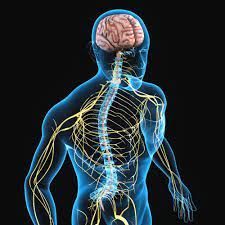How to feel strong and satiated on a meat free diet
Only two days into this month’s COP28 meeting in Dubai, 130 countries -including the US, China, the EU and the UK- have signed the Emirates Declaration on Sustainable Agriculture, Resilient Food Systems and Climate Action. Introducing supportive policies to favour healthy and sustainable foods -as well as encouraging a plant-based diet- will be necessary in order to keep the 1.5-degree goal. However, a meat free diet might feel like an upheaval for some. Let’s look at how to reduce meat consumption and still be satiated and feel “strong to the finich”.

Food contributes a third of the warming gases increasing global temperatures. Countries that have signed up to the Emirates Declaration represent 5.7bn people and 75% of all emissions from global food production and consumption.
Research by Oxford University has shown that a big meat-eater's diet produces 10.24 kg of greenhouse gasses each day. Grazing animals – such as cows, lambs and goats- have a significantly higher climate impact than other livestock. They use more land; need more energy intensive feed; and produce more manure -hence more methane emissions- than, let’s say, pigs or chickens.
Besides, because of the way they eat, food ferments in their stomachs and they burp methane gas. Consequently, a diet including meat and other derivatives from these animals will result into a much more intense GHG emissions per kg of food.
Keeping full in a plant based diet
One of the main challenges some people have when we either want to switch to a plant-based diet or simply eat less meat, is how to create satiety. Fibre and plant-based protein help you feel full, so be sure to eat plenty of those at all meals and snacks.
Great vegan and vegetarian protein sources are beans, nuts, quinoa, lentils and whole grains. Green peas, spinach, artichokes, avocados and asparagus are some of the vegetables with the highest content of protein. Plenty of fibre can be found in starchy vegetables such as corn, white potatoes, sweet potatoes, butternut squash and turnip.
For an extra boost of proteins and fibre, add some seeds such as chia, flax, hemp or sunflowers to your dishes. Chia and flax seeds also worked very well mixed in deserts and smoothies. Just have in mind that, to fully benefit from their nutritional properties, you will need to have 2tbs of chia and 3-4tbs of flax seeds per day.
Remember that portions can be bigger when you are eating mainly vegetables and grains so you can increase the size of your meals.
Healthy meat substitutes
There are two types of meat substitutes, those that use unprocessed or minimally processed ingredients, and the ones that are highly processed. Make sure you choose the first type, which is generally the healthiest and most sustainable.
Some of the most common unprocessed or minimally processed meat substitutes:
🥩 Tofu is one of the most popular plant-based meat substitutes. It’s made from soybeans, which makes it a great source of protein. There are several different types of tofu, ranging from softer to extra-firm, and different ways to prepare it depending on the recipe. These days, one of the most popular and cost efficient way to buy tofu is in a small block that then can be used multiple times.
🥩Tempeh is a traditional fermented food made from soaked and cooked soybeans inoculated with a mould, usually of the genus Rhizopus. It has a meaty, firm texture and yummy nutty flavour. It contains more protein content than tofu.

🥩Mushrooms are also a popular meat substitute. Although they aren’t high in protein, they are a good source of nutrients and minerals including vitamin B12. Portobello mushrooms, King Oyster Mushrooms or white button mushrooms amongst others can be used instead of meat in stews, chillies, burgers or fajitas. And don’t forget the type known as Chicken of the Woods, which taste is extremely similar to real chicken.
🥩Lentils are a star ingredient in vegetarian and vegan diets due to their incredible versatility, and high protein content. Quickly cooked and seasoned, lentils can be added to a variety of dishes. As a meat substitute, it’s used to replace beef minces in taco fillings, shepherd’s pies… Again, there a various types of lentils, requiring different cooking types, which means we can cook a different recipe every week depending on the type we are using.
🥩Black beans are another very popular natural meat substitute. They can be bought dried or in cans ready to use. If bought dried, they will need overnight soaking. Black beans make a great meat substitute for burgers or meat balls. They are an excellent source of proteins.
Plant based snacks
Good news: you can snack! Depending on your lifestyle and eating habits, snacks might be needed between meals to provide you enough calories to keep you going. Just make sure the snacks are healthy and have enough fibre and protein on them to fill you up eg. a package of crisps is unlikely to do the job.
Some healthy snacks you can have are energy bars; dips with crackers; fruit; or nuts. Drinks like handmade Zen kombucha can also be used as snacks. Make sure you plan your snacks in advance the same way you plan your meals to avoid running out of energy in the middle of the day.
Thirsty or hungry?
Because symptoms can be very similar, most people confuse thirst with hungry. Whenever you think you may be hungry, try drinking a glass of water. If after 15 minutes you still feel your stomach grumbling, you're probably hungry.
Most adults need about 2 to 2.5 litres of fluid a day, which is around 8 glasses. You get most of the fluid you need from drinks, but some also comes from the foods you eat, such as soups, stews, fruit, and vegetables. People should aim to drink between 6 and 8 glasses of liquid a day including water, lower-fat milk, fruit teas and sugar-free drinks, such as Zen kombucha. Keeping your liquid intake going will also make you feel full for longer.
The Emirates Declaration on Sustainable Agriculture, Resilient Food Systems and Climate Action is a first and important step towards the goal of keeping global warming to 1.5-degrees by 2030. Once the COP28 summit comes to an end, global leaders will have to go back to their nations and decide what measures to put in place to tackle food emissions. Regardless of what the collective governmental action will look like, reducing meat consumption is one of the most efficient things we as individuals can do to cut down our food related emissions.
Follow us on social media for vegan recipes that are easy and will keep you full throughout the day. Listen to OLG podcast to find out more about how we can fight climate change individually and collectively.















